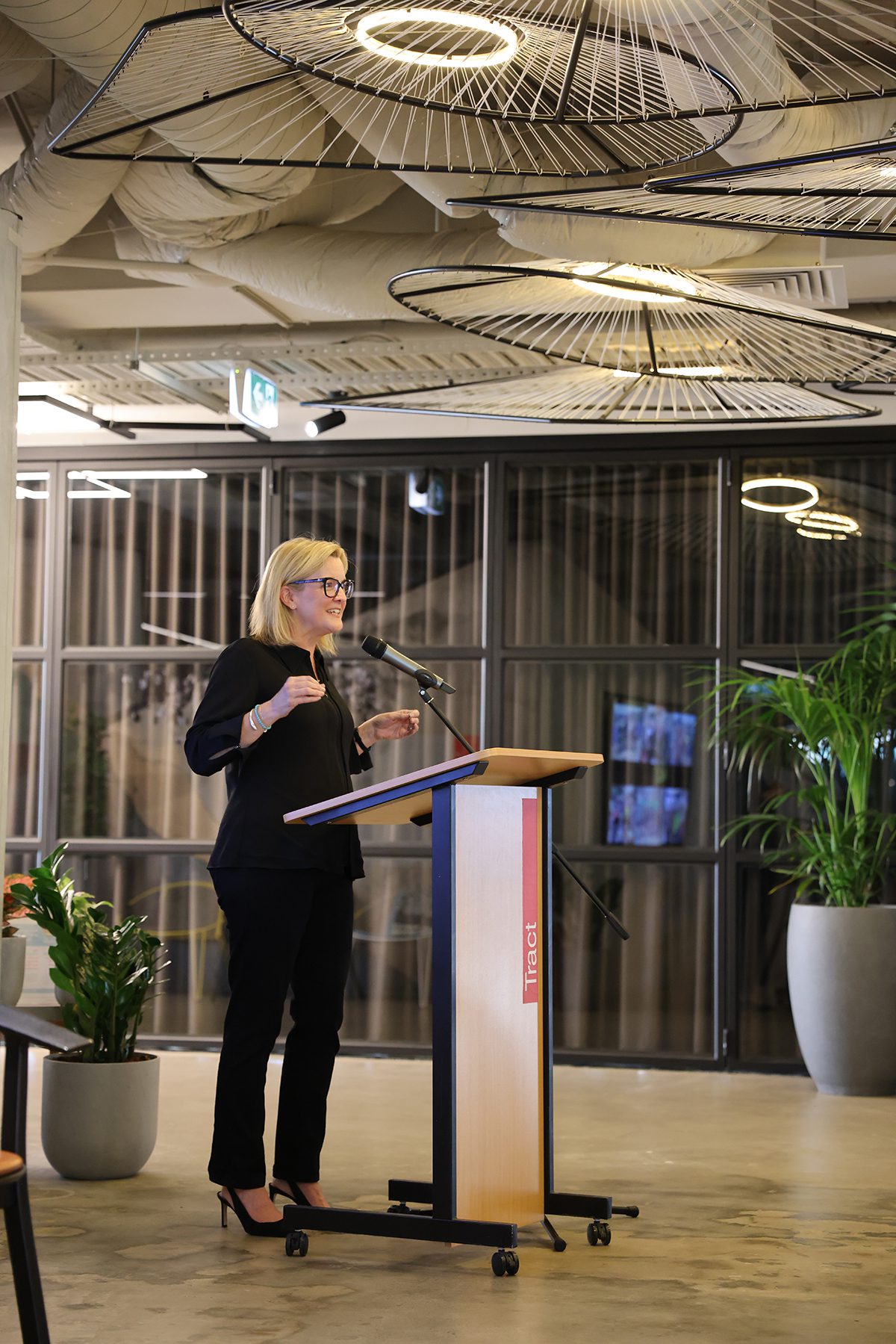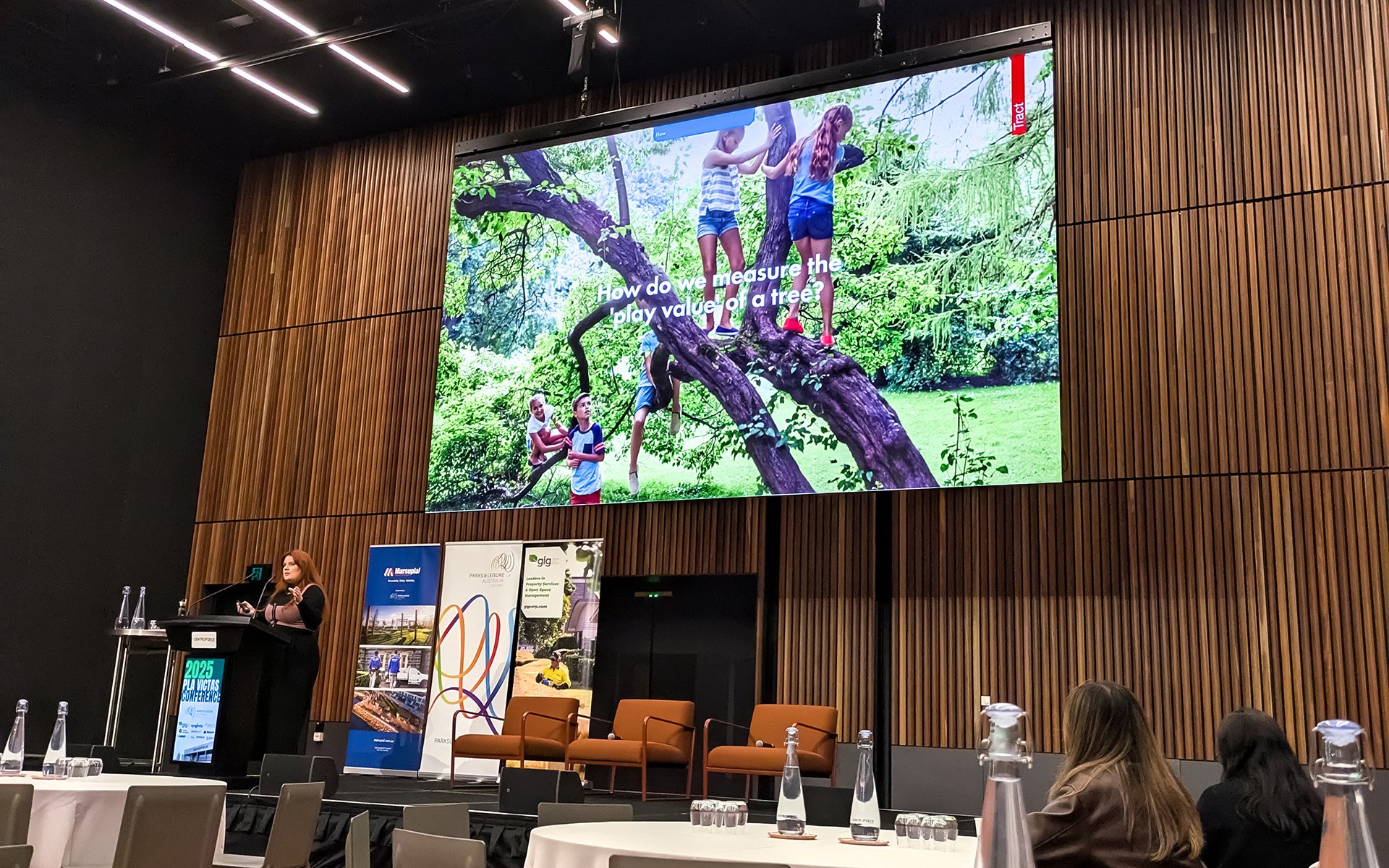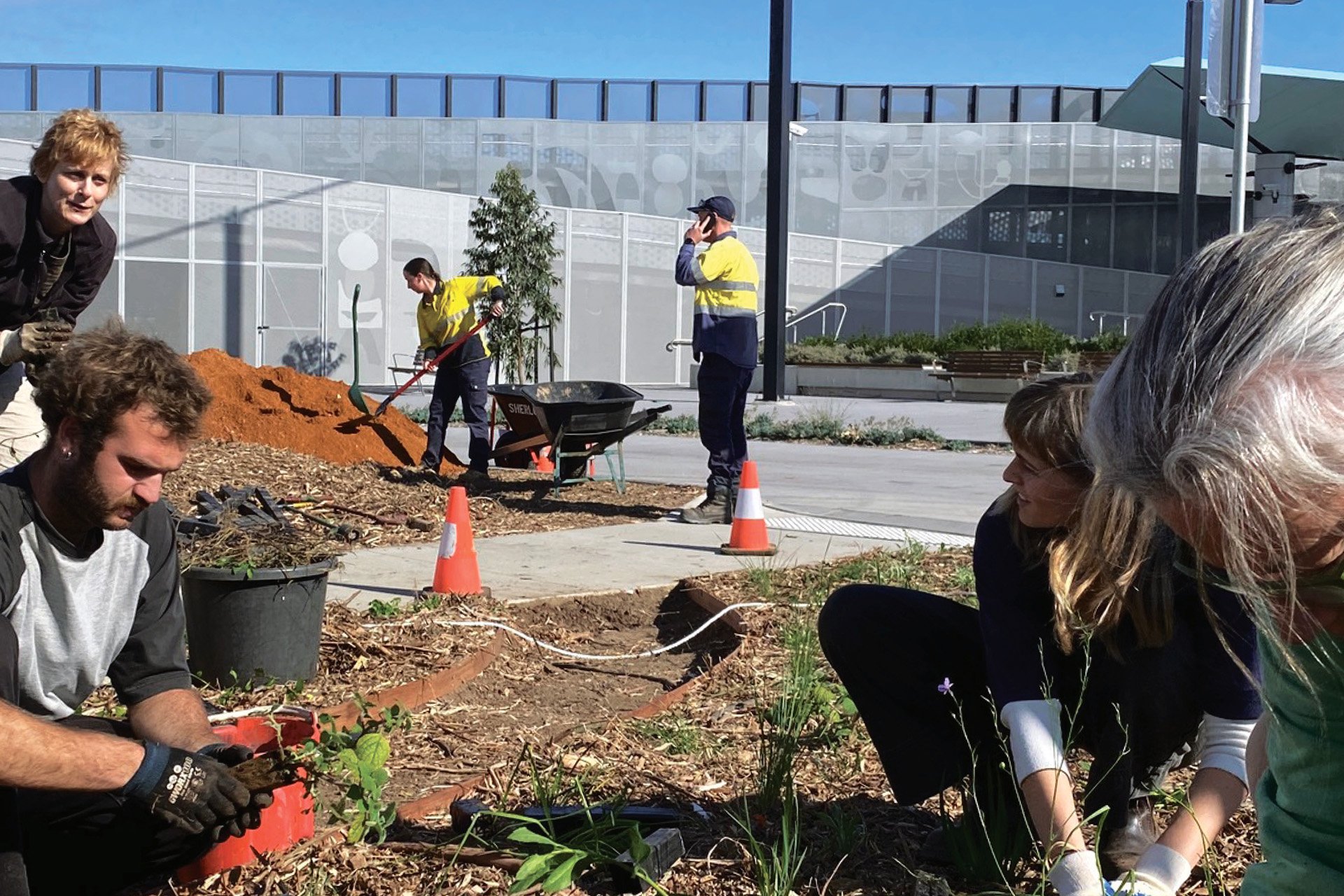Reading
Tract’s tradition of marking and celebrating International Women's Day was carried on this year by Brooke Miller, who spoke on the theme ‘Count Her In: Invest in Women. Accelerate Progress' to a large industry audience. She says that promoting gender equity in the workplace isn't just a women's issue—it's a fundamental human rights issue. In this article we share Brooke’s insights on how to provide women with equal opportunities for growth and progress, creating a work environment where everyone has the chance to thrive.
During her presentation at Tract’s Melbourne office, Brooke Miller talked about research on the typical upbringing of male and female CEOs. The QUT study, dating back to 2012, still makes compelling reading about the childhood experiences that shape male and female leaders.
Dr Terrance Fitzsimmons spent over three years interviewing CEOs of Australian listed companies, as well as chairpersons and executive recruiters. He discovered that men and women who rose to senior roles had very distinct childhood experiences. The male CEOs often had fathers who were professionals such as lawyers, and their mothers stayed at home. They were almost always the captains of their school football teams.
Female CEOs, on the other hand, often faced significant challenges in their childhoods, such as traumatic events that disrupted their lives. The other compelling pattern was that most women came from small business families, where they learned about financial management, staffing issues and self-resilience. “It’s horrifying to think that to be a successful female CEO, you must have some terrible, tragic event early in your life. But it’s not about tragedy, it’s about resilience,” says Brooke.
Based on this research, Brooke suggests that women in job interviews talk about the challenges they’ve overcome, be it work or life, to demonstrate their skillset. “I encourage women to recognise when they’ve been in a really awkward experience. It might not be the story you immediately think to take to the job interview, but maybe you should because it shows you are made of tough stuff. And that’s useful.”

Brooke's career
Brooke Miller has taken a few career turns since her time as a landscape architect and town planner in the 1990s. She attributes her career progression to her life motto “chuck my hat in the ring” and see what happens.
Today she is Asia Pacific President at Lineage Logistics, a global food supply chain company. She is also a non-executive director at Melbourne Business School, where she completed her MBA in 2000. After obtaining her MBA, Brooke pursued a career in sales, marketing and finance at BP, where she became Regional Director for BP Solar and then Vice President for Sales and Marketing. She also spent several years as Chief Financial Officer for Australia, New Zealand and the Asia-Pacific.
Her landscape design experience remains relevant to her current role in food logistics in Asia, as she relates her day-to-day experience working out where to build the next facility in places where land is at a premium, using the available land in innovative ways and finding accessibility points to a port.
“I’ve been lucky to work with some of Australia’s biggest infrastructure providers. I’ve been lucky to build solar farms as far as I can see in places like Korea and the Philippines and take energy to people who never had access to energy before. I’ve worked with a lot of men; BP has 27 per cent women, and the company I currently work with has 23 per cent women.”
“It’s taken me a long time to get to this place. I had no plan to be in food. I really had no plan to be in energy when I worked at BP Solar. I did have a plan to be in landscape architecture and town planning, but I’ve learned quite a lot along the way. One of the normal conversations on International Women’s Day is what is the business case for the inclusion of women? And I think it’s total bullshit to be honest. I’m not going to talk about it because I find it offensive that there has to be a business case to include women.”
Targets, pipelines and culture
Brooke advocates for strategies that promote gender inclusivity in the workforce. The 40:40:20 approach aims for 40 per cent women, 40 per cent men, and 20 per cent of any gender in the workplace. “I think it’s a nice way to think about gender inclusivity in the workforce. Women don’t need to be a dominant part, they just need to be a part of the mix. It takes the conversation to quite a different place.”
Talent pipelines are another way to promote gender balance in the workforce by addressing the disparity in career progression rates between men and women. “Women fall out of the career pathway at double the rate of men. So, if you want 20 women participating you need to start with 40. If you have 40 men, you need to pull through 80 women.” It’s also essential to provide early career training for women “to develop confidence and skills to help them through the pipeline.”
Brooke highlights that women view job applications with a different mindset to men, often overlooking jobs because the language in the advertisement isn’t female friendly, or inclusive.
“There’s lots of words that you might not think twice about until you see them in an ad and think, ‘Well maybe I won’t apply for that because some of the requirements don’t fit with my lifestyle.’ So, removing those from job ads can help attract more women.” Employers should also have diverse interview panels at every stage of the interview process “so that women can actually see other women,” she says.

Life experiences that support career development
While Brooke talked about what businesses can do to support gender equity, she says that everyday experiences, such as growing up surrounded by capable women, like her mum and her mum’s cousin, have been “much more important” in helping to shape her career and build resilience.
Brooke shared her experience of growing up with a single mother who supported their family. She explained how having discussions about money early on and “knowing that things were paid for because of her hard work” helped build her own business skills. “I remember she used to have a book where she wrote down how much everything cost, my school uniform, my school books, everything, because we may not have been able to afford it.”
Brooke’s mother and her cousin Christine used to have conversations about work at the table. They talked about the politics of work, tough deals, tough days, tough people, good things, and bad things. Christine was a chief pharmacist at one of the major hospitals in Adelaide, and Brooke’s mother was a quality assurance manager for pharmaceutical company Glackso Wellcome.
“Sitting at the table, it was like a masterclass in what to expect for your future. Both of those women probably don’t think that was a big deal, but it’s absolutely wired in my head what those conversations were about and thinking, ‘Okay, I’m going to have a tough day,’ but that these two had tough days and they had it much tougher.”
Brooke has experienced the positive influence of strong women in her family and influential figures in her career. Having someone who believes in your potential and encourages you to aim high can make a significant difference. These mentors not only provide guidance and support, but they also challenge ingrained stereotypes and biases, helping women to break through barriers and reach their full potential.
Brooke was inspired by the impact of renowned landscape architect and urban planner David Yenken early in her career, and as it developed. “As a student, David told me his story and he said to me, ‘You know what, you can do it too’.”
Years later, while giving a presentation for BP Solar, Brooke noticed David sitting in the back row. “He was there to give you a nudge and to celebrate with you, and to maybe course correct now and then and to give you great advice. He had a phenomenal impact on my life and my belief in what is possible and what might be worth the effort.”
She says that women should follow the careers of other women who inspire and influence them, which is made easier these days through social media. “When I was a young landscape architect, there weren’t a lot of women. But I could see Julie Lee (now Director of Landscape Architecture at Tract Consultants). I didn’t have a formal mentoring relationship, but I watched what she was doing and how she was doing it. I’d say you don’t need to have an intense relationship to really grow from someone.”
How to affect change
Brooke’s experiences and anecdotes show that promoting greater participation by women in the workplace isn’t just about implementing policies or setting targets. It’s about fostering a culture where women feel empowered to step forward, where their contributions are valued, and where they have access to the same opportunities for growth and advancement as their male counterparts.
Brooke urges leaders to be proactive and ask themselves “Are you in a position to affect change?”
“Intervene, do meaningful stuff. Make time to talk to people. You might think, ‘I haven’t got a lot of advice for a graduate’. You might think if somebody goes on maternity leave, ‘That was a long time ago for me, I don’t have any advice’. It’s not true. You don’t know what advice people need.
Can you give someone a job? Can you give them an experience? Can you give them a project? Can you give them an opportunity to meet a client that they haven’t met before? All those things help build that muscle and that capability and that sense of, actually ‘I can do this’.





